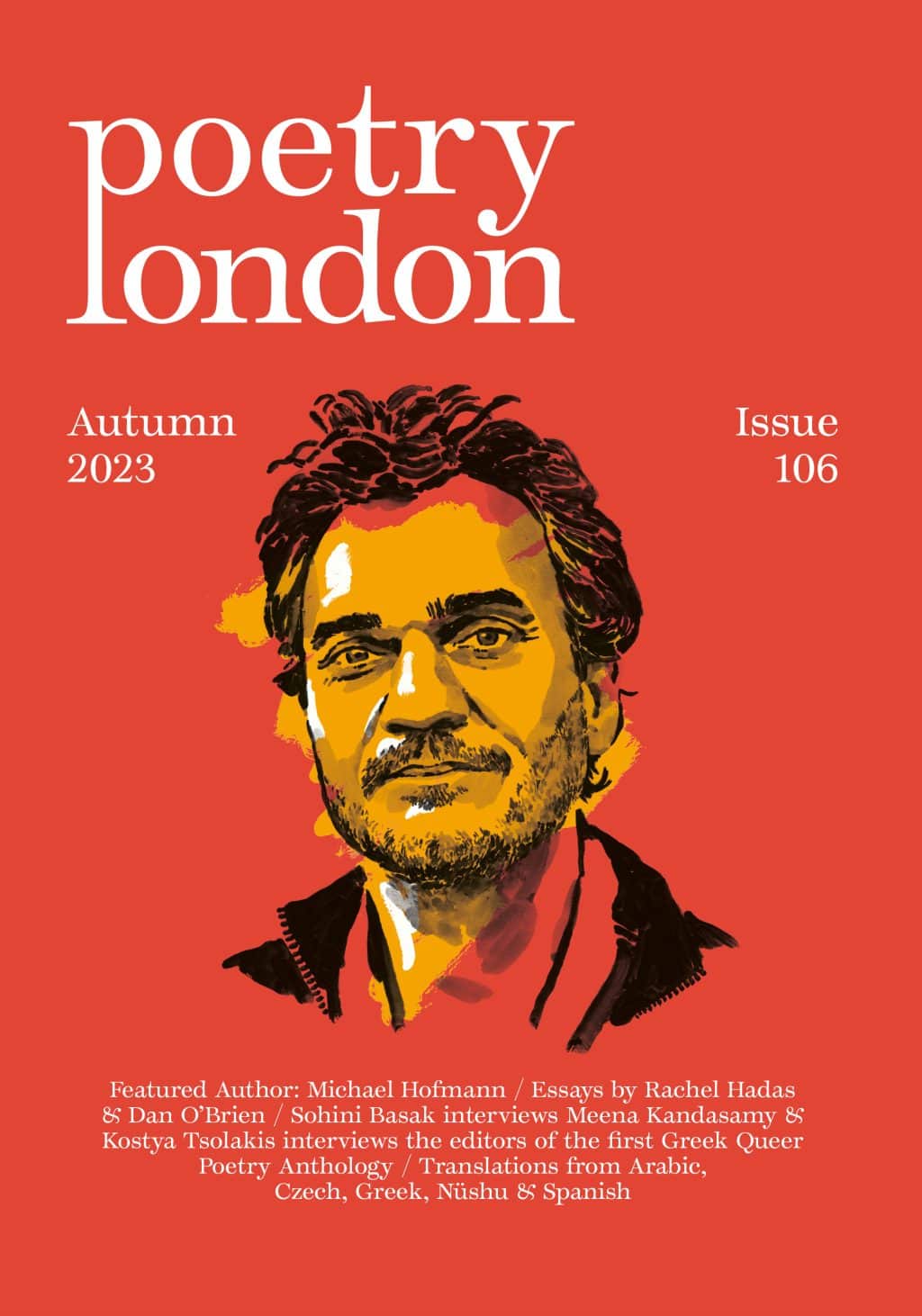What is Poetry?
‘… I am a dictation, pronounces poetry, learn me by heart, copy me down, guard and keep me, look out for me, look at me, dictated dictation, right before your eyes: soundtrack, wake, trail of light, photograph of the feast in mourning…’
Perhaps it is the selection from David Harsent’s Salt that opens this issue of Poetry London that brings to mind the ‘feast in mourning’, or perhaps it is Andrew Durbin’s ‘Love Don’t Cost a Thing’ that conjures the passage above, from Jacques Derrida’s Che cos’è la poesia?, along with its ventriloquism of the poem as that which exhorts you to ‘learn me by heart’.
Derrida’s essay continues:
‘… apprendre par coeur… imparare a memoria. Isn’t that already it, the poem, once a token is given, the advent of an advent, at the moment in which the traversing of the road named translation remains as improbably as an accident, one which is all the same intensely dreamed of, required there where what it promises always leaves something to be desired? A grateful recognition goes out toward that very thing and precedes cognition here: your benediction before knowledge…’
My recollection of that final phrase, the poem as a ‘benediction before knowledge’, might also have been spurred (to borrow a rather Derridean verb) by Sarah Howe’s essay ‘The Feel of Thinking’, which appears in this issue. Later in the same essay of Derrida’s, he tells us: ‘you will call the poem from now on a certain passion of the singular mark, the signature that repeats its dispersion, each time beyond the logos, ahuman, barely domestic’.
Of course, in many ways, the agglomeration of disparate poems that a magazine produces, as indeed the miscellany of the average book of poems or the pageantry of competitions, is always antithetical to the poem itself as a ‘singular mark’, as an event of singularity. Why read one poem in the company of another, and yet another? Why shouldn’t each poem appear both in its form and materiality as an hermetic thing? Why should the event of one poem be impinged on by its noisy neighbour across the page clamouring for your attention?
Of course, the answer is that the space, the event of the poem occurs in a third place beyond the page and between you as the reader and the poem itself. The boundaries of this space, its inviolability, are a construction of language, cadence, texture, which should hold you within it, as I’m sure many of the poems in this issue will, and certainly that of this year’s competition winner, Geraldine Clarkson.
All of this brings me, slowly, to perhaps the most striking image in Derrida’s essay, that of the ‘catachrestic hedgehog, its arrows held at the ready’, which develops here:
‘The poem can roll itself up in a ball, but it is still in order to turn its pointed signs toward the outside. To be sure, it can reflect language or speak poetry, but it never relates back to itself, it never moves by itself like those machines, bringers of death. Its event always interrupts or derails absolute knowledge, autotelic being in proximity to itself. This “demon of the heart” never gathers itself and gets off the track (delirium or mania), it exposes itself to chance, it would rather let itself be torn to pieces by what bears down upon it…’
As we enter the odd season of poetry prizes and National Days of Versification, of actors flenching poems on stages and airwaves and the inevitably sanitised ‘initiatives’, it’s perhaps worth stopping to take a deep breath and to remember why we read poetry at all (perhaps why we should spend more time simply reading it). For me, it’s that chance encounter with the poem as a real ‘interruption’, a real ‘derailment’ of logic, linguistic risk to the point of mania, the exhilaration of which is, at best, enough to sear itself into the heart.
Ahren Warner, Poetry Editor

